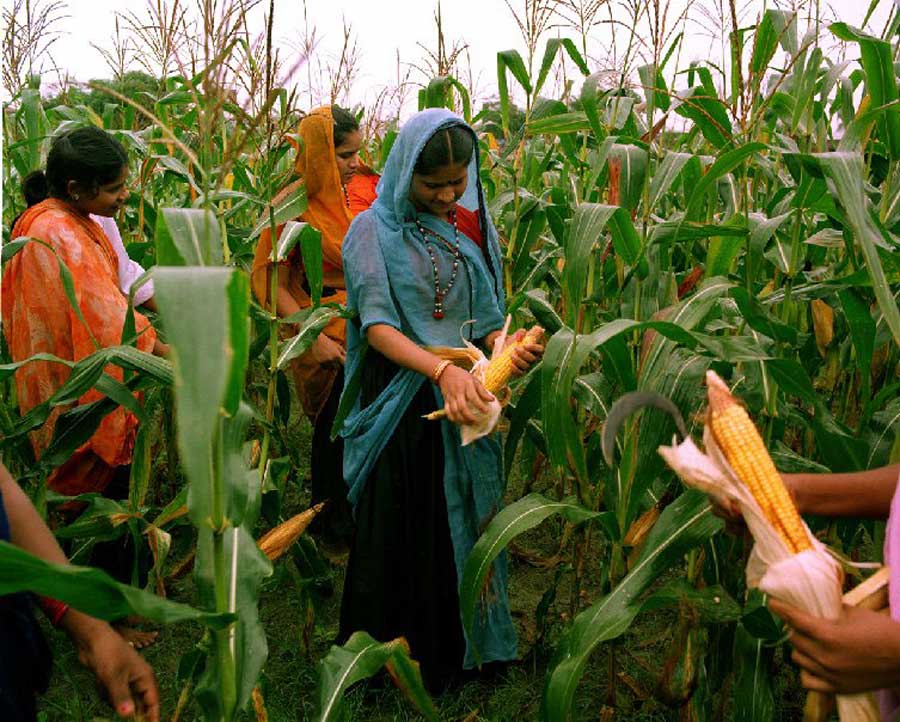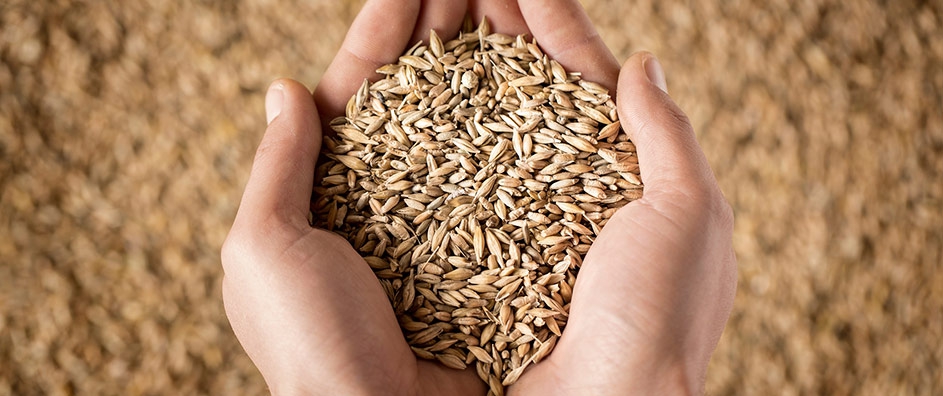The views expressed in our content reflect individual perspectives and do not represent the authoritative views of the Baha'i Faith.
All great movements have advanced through altruism, selflessness, and self-sacrifice… – Abdu’l-Baha, Star of the West, Volume 3, p. 252.
In their humanitarian and social action work, Baha’is have a remarkable example to follow: Abdu’l-Baha.
In the early 1900s, to cite just one strategic example, Abdu’l-Baha bought some land in a community in Jordan known as Adasiyyih. It was fertile farming land. He asked Baha’is from Yazd, who knew about farming, to settle on this property in Adasiyyih and develop it. Abdu’l-Baha taught those Baha’i farmers to grow nourishing vegetables and asked them to focus, in particular, on corn. They produced high quantities of food, which they stored in pits built by the Romans many years earlier on the same land.
Then World War I broke out and began to engulf the world. The Ottoman Empire was embattled, and the war came to Palestine where Abdu’l-Baha lived. The community was ravished by famine. Abdu’l-Baha brought food from the Baha’i farming communities in Jordan and fed the starving people of Haifa, Akka, and the adjacent neighborhoods in the famine years of 1914 to 1918.
We learned that when the British marched into Haifa there was some difficulty about the commissariat. The officer in command went to consult the Master. ‘I have corn,’ was the reply. ‘But for the army?’ said the astonished soldier. ‘I have corn for the British Army,’ said Abdu’l-Baha. He truly walked the Mystic way with practical feet. – Lady Blomfield, The Chosen Highway, p. 210.
In more recent years, the Baha’i community has delved into many different avenues of altruistic social action around the world, and learned some important lessons.
Initially, Baha’i social action and humanitarian efforts have focused on the critical task of capacity-building, with the idea that Baha’i-inspired activities should start on a modest scale, growing in complexity only as human resources increase.
In 1983, the Universal House of Justice announced the establishment of the Office of Social and Economic Development (OSED) at the Baha’i World Centre to “promote and coordinate the activities” in the field of Baha’i-inspired humanitarian service.

Women of the Barli Institute harvesting corn.
During this period of time near the end of the last century, several Baha’i-inspired organizations were established independent of Baha’i institutions. In 1985, Baha’is founded The Barli Development Institute for Rural Women in Indore, India, a Baha’i-inspired social and economic development project under the direction of the National Spiritual Assembly of the Baha’is of India. The Institute, now an independent vocational school, provides programs for women and girls, and has an impressive track record of promoting literacy and skills among a community with great needs.
In 1992, after the devastating riots there, Baha’is in Los Angeles initiated a grass-roots project that later evolved into Full-Circle Learning, a service-oriented educational model that has now spread to schools around the world. In 1999, the Mona Foundation was founded to support grassroots educational initiatives to raise the status of women and girls worldwide. The Foundation provides funds to nonprofit organizations that advance these principles. In 1997, we founded the Tahirih Justice Center to provide free legal protection for women and girls fleeing human rights abuses. A United States-based organization, Tahirih utilizes U.S. law to protect women and girls from around the world who face many forms of violence. These organizations—just a few of the many Baha’i-inspired non-profits in existence today—have expanded their missions and grown their programs to serve more and more people in need.
Then, in 2001, the Universal House of Justice instituted worldwide the “cluster” model—a way to organize and combine human resources within adjacent communities—and the “institute process” as a means of training those resources. Baha’is all over the world now utilize the institute process to develop a hyper-localized neighborhood focus, which centers on the spiritual and developmental life of a community, and includes a pattern of devotionals, study circles, children’s classes, and junior youth groups.
All of these activities, whether Baha’i-sponsored or Baha’i-inspired, take their inspiration from Abdu’l-Baha and his altruistic life of service to others:
The friends of God should become the manifestors in this world of this mercy and love. They should not dwell on the shortcomings of others. Ceaselessly should they be thinking how they may benefit others and show service and co-operation. Thus should they regard every stranger, putting aside such prejudices and superstitions as might prevent friendly relations.
Today the noblest person is he who bestows upon his enemy the pearl of generosity, and is a beacon-light to the misguided and the oppressed. This is the command of Baha’u’llah. – Abdu’l-Baha, Star of the West, Volume 2, pp. 5-6.
Next: How to Resolve Human Problems—with Spiritual Solutions
















Comments
Sign in or create an account
Continue with Googleor